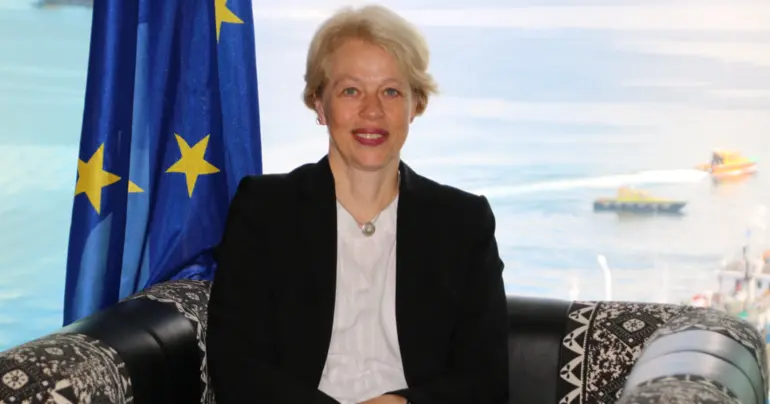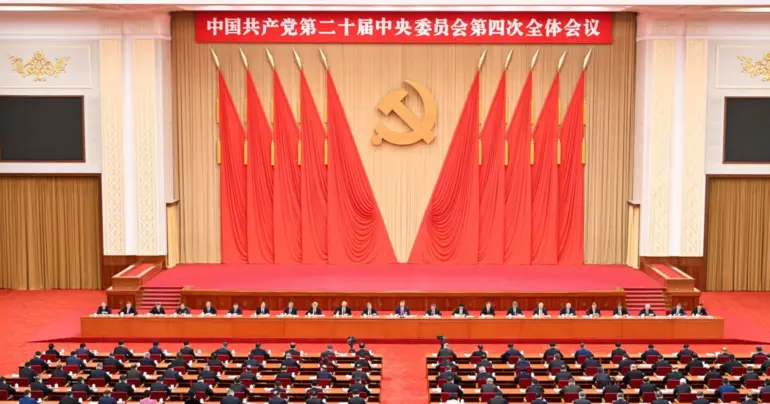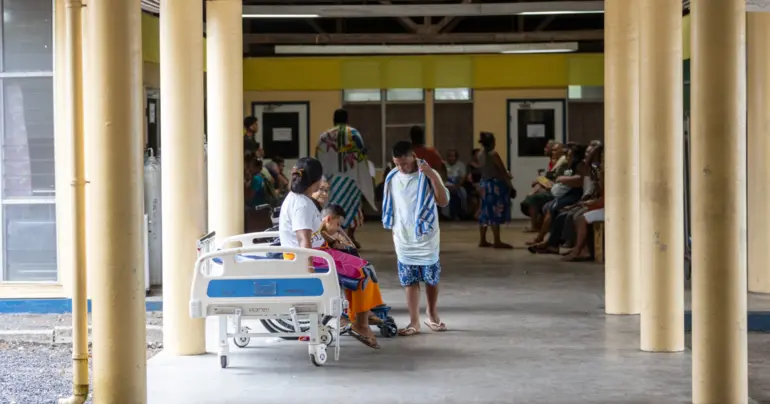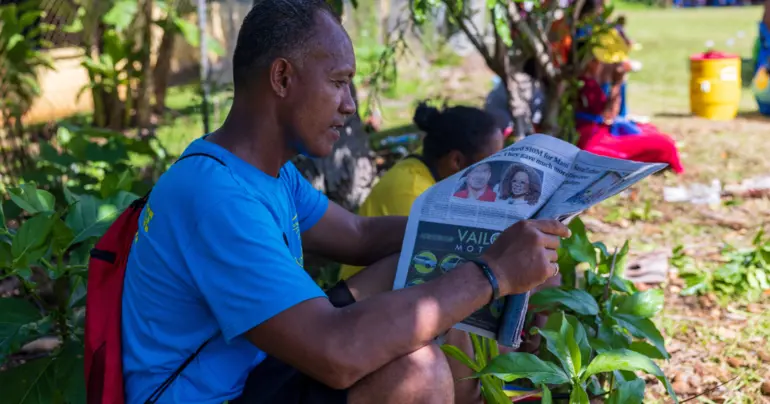Strengthening Samoa's Resilience: Parametric Insurance for MSMEs and Agriculture
Extreme weather events, such as strong winds and continuous heavy rainfall, pose significant challenges to the livelihoods of Samoan families, particularly low-to-middle-income earners.
In a recent demand survey by the UN Capital Development Fund (UNCDF), nearly half of the respondents (47% out of 436) identified ‘strong winds’ as a significant natural hazard that disrupts their livelihoods, leading to loss of income.
Among the respondents surveyed were farmers, fishers and Micro, Small and Medium Enterprise (MSME) owners. The findings highlight how adverse weather conditions can affect farm outputs and business operations in the absence of a disaster risk financing tool, such as parametric insurance, to help the farmers cope and recover.
This vulnerability is intensified by the fact that many Samoans are part of the country’s tourism, MSME, fisheries, and/or agriculture sectors. These are key livelihood sectors for the Samoa economy and any disruptions can lead to serious economic instability and hamstring the government’s development efforts. Farms and businesses are directly exposed to the adverse impacts of extreme weather events, in the form of crop losses, property damage, and business disruptions.
These recurring challenges threaten the livelihoods of countless Samoan families, with low-to-middle-income earners bearing the brunt of these hazards through loss of earnings and damage to income-generating assets and personal property.
Despite these challenges, Samoans have demonstrated remarkable resilience in the face of adversity. According to the UNCDF survey, Samoans have adopted creative and time-tested strategies for coping with and recovering from extreme weather events. These include diversifying income sources and exploring new avenues for business growth.
One common approach is to sell leftover stocks available in their business and any undamaged crops recovered from the farms, allowing them to generate immediate income for essential needs and recovery efforts. Moreover, despite facing extreme weather events, MSMEs and farmers bounce back by rebuilding and reviving their farms and businesses with their savings or assistance from their relatives living overseas.
Although this can temporarily boost their household income, it is essential to prevent extreme weather events from gradually depleting the savings of everyday Samoans. That is why having access to reliable disaster risk financing instruments is vital during such challenging times.
Accessing formal financial support remains a significant hurdle for those affected by extreme weather events. Borrowing from traditional sources like commercial banks is often an unrealistic option, given the stringent requirements and collateral demands. This limitation puts the affected communities at further risk, preventing them from fully recovering and potentially leaving them in a vicious cycle of vulnerability.
UNCDF’s Pacific Insurance and Climate Adaptation Programme (PICAP), partnering with local insurer Samoa Surety Insurance, is set to introduce a parametric microinsurance product in Samoa this year as a direct response to this pressing need for financial protection in the immediate aftermath of an extreme weather event for the country’s climate-vulnerable communities.
Drawing from their successful implementation in Fiji, Tonga, and Vanuatu, UNCDF seeks to extend this innovative solution to build financial resilience and preparedness in Samoan communities and, over the long term, the country’s national economy.
The introduction of the parametric insurance product will aim to enhance the financial resilience, improve financial health of Samoan households and reduce the vulnerability of farmers and MSMEs. The parametric microinsurance product will provide much-needed financial support to communities affected by extreme weather events, enabling them to recover and rebuild their livelihoods. Parametric insurance represents the kind of innovation and collaboration needed to address complex challenges faced by vulnerable communities in the Pacific region.
The implementation of parametric insurance in Samoa has the potential to greatly benefit low-to-middle-income individuals and communities who are most affected by extreme weather events. UNCDF’s innovative solution of parametric insurance provides a much-needed safety net for farmers and MSMEs, enabling them to access quick payouts for quick recovery following a natural disaster. This approach demonstrates the power of working together to address the challenges faced by vulnerable communities, as has been witnessed in Fiji and Vanuatu.
UNCDF’s market ecosystem development approach has been amply validated in the last two years in Fiji, Tonga and Vanuatu and building on the lessons learned so far, expansion into other Pacific countries and beyond is underway. By enhancing financial resilience and reducing climate vulnerability, this insurance product can help individuals and communities recover and rebuild their lives after an extreme weather event and continue to lead productive and prosperous lives long after it has passed.
PICAP describes Parametric insurance as a type of insurance that pays out a predetermined amount of money when a specific event occurs. The occurrence of this event is determined by a pre-agreed index or parameter, which is established before the insurance policy is purchased. This type of insurance is often used for situations where the occurrence of an event can be objectively measured, such as extreme weather events or crop failures. By using a pre-determined index or parameter, parametric insurance can help provide a fair and efficient way to compensate policyholders for losses.
PICAP is jointly administered by the United Nations Capital Development Fund (UNCDF), the UN Development Programme (UNDP) and UN University’s Institute for Environment and Human Security (UNU-EHS). The regional programme is supported by the Governments of Australia and New Zealand.
The Fiji product offers cover for cyclonic storms, with both carrying a maximum coverage of FJ$1,000 (1,200), to be paid out within 14-21 days following a tropical cyclone. Some other benefits include:
· Payouts are based on the severity of the cyclone with no lengthy assessments needed
· The premium costs FJ$100 (120 SAT) a year, which equates to less than FJ$2 (2.40 SAT) a week
The programme currently has 2,799 individuals enrolled in market-based parametric insurance products, and 47% of these beneficiaries are women. Additionally, the programme has formed a network of 21 partners to pilot and scale the use of market-based parametric micro insurance in Fiji, Tonga, and Vanuatu.
Reginald Singh is the United Nations Capital Development Fund’s Climate Disaster Risk Insurance Analyst.











